Health
UK study focuses on improving jockeys' mental health after injury
Jockeys are some of the most passionate, fearless people in the horse racing industry, but like any sport, injuries can happen. Most athlete populations have little trouble finding literature on how emotion management, coping strategies and moral support impacts athletes after an injury. When it comes to the horse racing industry, research on the psychological […]


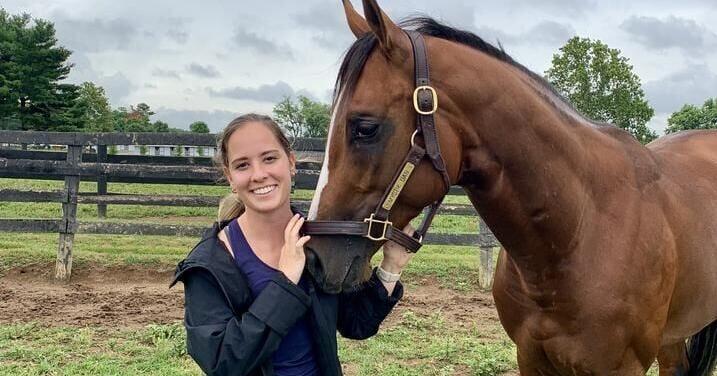
Jockeys are some of the most passionate, fearless people in the horse racing industry, but like any sport, injuries can happen.
Most athlete populations have little trouble finding literature on how emotion management, coping strategies and moral support impacts athletes after an injury. When it comes to the horse racing industry, research on the psychological effects of injuries on jockeys is lacking
Kelley Renner is a graduate student at the University of Kentucky completing her master’s degree in sport and exercise psychology in the College of Education. Through her interest in working with jockeys and the horse racing industry, Renner began exploring the effects of injury on this group of athletes.
This spring, she presented her master’s thesis, “The Psychological Impacts in Exercise Riders and Professional Jockeys Following Injury.”
“I’ve always had an interest in post-injury experience and a passion for the equine industry, so I decided to combine the two,” Renner said. “One of my core values is compassion, and if I can help people with something, even if it’s just 1%, I want to try to do that. Not a lot of horse racing spectators know the ins and outs behind the scenes of what really goes on. So, I wanted to bring awareness to this group of athletes.”
The goal of her thesis is to begin unpacking this area that is underrepresented in research, specifically looking at the psychological effects jockeys face after an injury.
Renner conducted semistructured interviews with jockeys to gather information on specific emotions associated with post injury, coping strategies they use when facing an injury, what kind of support system they have and what they go through during the return to ride process.
From her analysis she created a model that outlines the athlete’s journey when it comes to the mental impact. In traditional athletes, post-injury, there is a timeline of when the injury occurs, to the recovery period and being cleared to return to the sport. She used this timeline as a guide for her model.
“Based off the themes in the traditional athlete injury timeline, that’s where I aligned the emotions that were specifically involved with each stage of injury occurrence,” Renner said. “So, for each phase of the timeline I explored the emotions the jockeys felt. For example, during the recovery phase, how might the emotions look different for jockeys compared to traditional athletes.”
Some of the most common injuries jockeys face are concussions, muscle tears or strains, shoulder dislocation and broken bones.
“What we know is a lot of them will try to hide their injuries,” said Michaela Keener, Ph.D., an assistant professor in the Sports Medicine Research Institute, Equestrian Athlete Initiative faculty in the UK College of Health Sciences and committee member for Renner’s thesis. “There’s a lot of pressure for them to return to riding, even if they are not feeling 100%. Racing is their livelihood to support themselves and often their families. They have a lot of pressure to get back on the horse a little too early.”
In general, the horse racing business can be very strict and demanding. It’s a competitive industry, it can cause a lot of stress and fear among the riders that they can be replaced at any moment.
“I’m feeling very mad, mad because they don’t care. They replace you very soon. You have an accident, and the next day another person is going to be over there. Nobody called. Nobody’s asking how you’re feeling,” said one of the jockeys who participated in the interview.
Renner’s analysis explains that a lot of these athletes come from outside of the United States, so most of the time they don’t have a support system nearby to lean on. The jockeys told her this is something they struggle with.
The athletes have a lot of powerful emotions, but with the lack of support feel like they have no one to talk to about it.
During her interviews, Renner asked the jockeys how they coped when an injury occurred, and sadly, suicidal thoughts were mentioned.
“I had one participant admit to attempting suicide once, so it’s important for people to grasp the severity of the situation here,” Renner said. “This is why we must research, advocate for the jockeys and provide resources.”
Although suicide is at the very extreme, it happens in the horse racing world more than people would think.
“Sometimes people who go to Keeneland and watch the pretty racehorses run just don’t know what’s happening behind the scenes,” said Ashley Samson, Ph.D., a professor in the Department of Kinesiology and Health Promotion in the College of Education and chair for Renner’s thesis. “We aren’t trying to paint a horrible picture, but it’s not always pretty, and that’s the reality.”
Uniquely, Renner found that this group didn’t necessarily have a fear of reinjury, but instead, they mentioned being afraid that they might develop an anxiety around riding or racing.
“It’s the fear of having fear,” Renner said. “They know that if they are fearful, they cannot speak up about it, they feel like they must hide it. People are always told if you’re afraid to get on the horse, you should not get on that horse. But these athletes have a lot of pressure, so they feel like they have to regardless of if they have that gut feeling.”
They feel as though they don’t have a choice and must get on the horse to make their livelihood. The jockeys explained in their interviews that they don’t have anyone to talk to when they feel these emotions.
The culture of horse racing has a stigma around expressing feelings of mental health struggles. There is an unspoken rule that they shouldn’t talk about it, push it down and get back up on the horse.
Renner hopes that with her research, she can help with breaking the stigma and ensuring jockeys and other members of the industry have all the resources they need when it comes to taking care of their mental health.
“It’s a very difficult sport,” said another jockey who participated in the interview. “Mentally, this sport can drain you because you could be on top of the sky today, and tomorrow you’re only as good as your last race.”
Renner asked if any of the jockeys had experience in receiving help for their mental health or mental performance. Three out of four said no, they never have, but they all agreed that it would’ve been helpful if they would’ve had someone to talk to.
“The emphasis there is that we know that they want the help,” Renner said. “They are ready for it. It’s just the challenge of how we combat the stigma, the barriers and getting over that.”
Her data only focuses on four jockeys so far, but she feels confident that if she is able to gather more research from larger groups of jockeys, she can help them even more.
“With this research, Kelley is on the brink of something that can change the industry,” Keener said. “The Horseracing Integrity Safety Authority has recently worked with the Jockeys’ Guild to provide jockeys with 24-hour access to mental health services. As we see these resources become more available hopefully, more people will also be willing to talk to Kelley about their experiences.”
As more resources are offered to the athletes, their hopes are to begin to see a shift in the stigma around jockey mental health.
“The public needs to be more aware of these athletes, they’re often overlooked,” Renner said. “We can’t forget that these riders are human, it is a real person riding the horse. They all have a passion for riding, it’s what they love to do.”
Renner will continue to research and advocate for these athletes as she completes her master’s degree and will remain at UK to pursue her doctorate degree.
Health
8 adaptive athletes conquer Spartan Race with the support of 48 volunteers
In a powerful display of resilience, teamwork, and inclusion, eight athletes with disabilities completed the grueling Spartan Race this past weekend with the help of 48 dedicated volunteers, thanks to a partnership between the IM ABLE Foundation, Dealers of Hope, and Oscar Mike. These athletes—ranging from wheelchair users to individuals living with amputation, spina bifida, […]
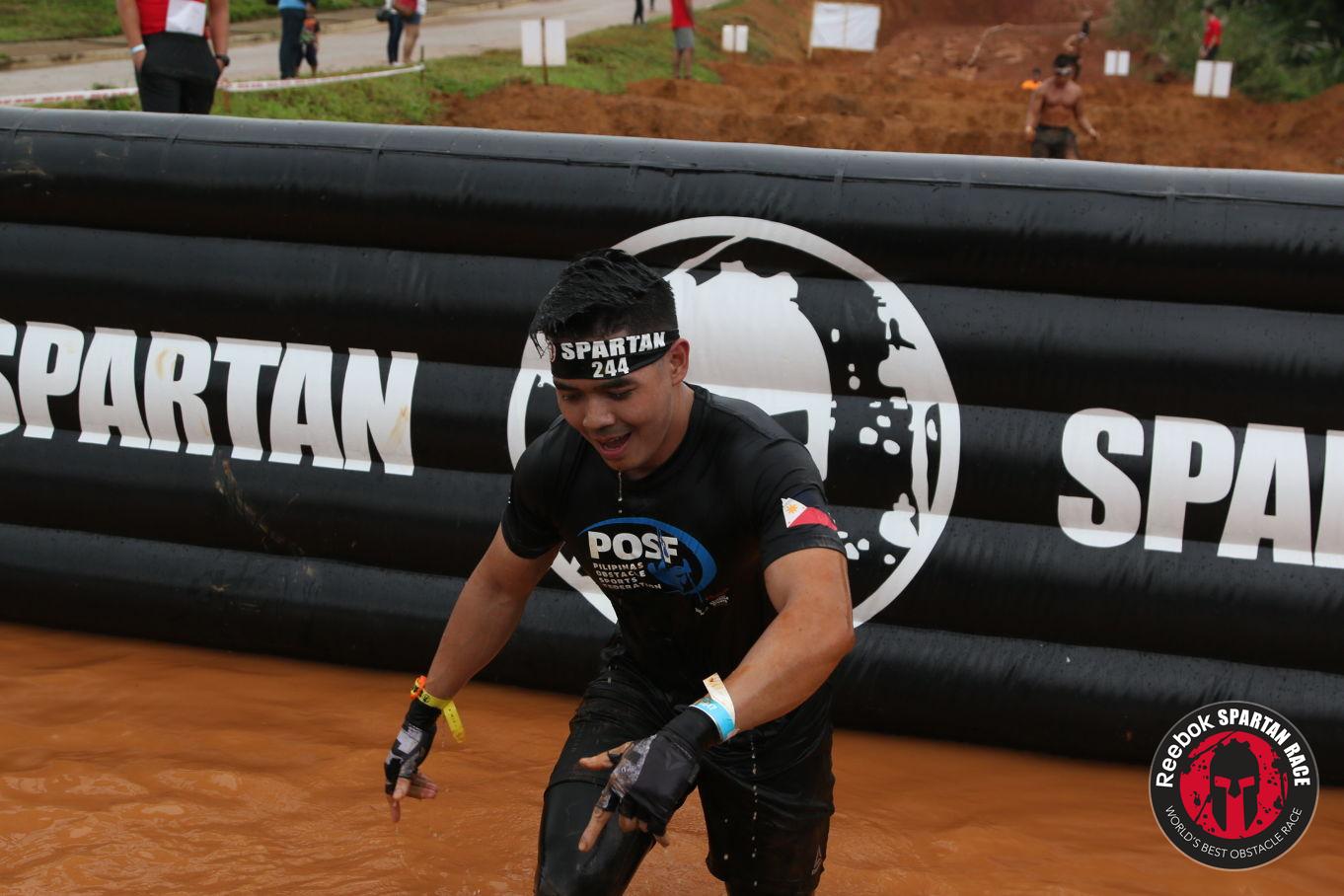
In a powerful display of resilience, teamwork, and inclusion, eight athletes with disabilities completed the grueling Spartan Race this past weekend with the help of 48 dedicated volunteers, thanks to a partnership between the IM ABLE Foundation, Dealers of Hope, and Oscar Mike.
These athletes—ranging from wheelchair users to individuals living with amputation, spina bifida, pediatric cancer survivorship, traumatic brain injury, autism spectrum disorder, and more—faced one of the most physically and mentally demanding obstacle courses in the country. And they didn’t just participate—they turned heads, shattered expectations, and crossed the finish line like champions.
Participating in the Spartan Race was a new experience for IM ABLE Foundation’s Operation Lead from the Front (OLFTF) program, which provides health and fitness programs designed to empower veterans with disabilities. This initiative’s mission is to cultivate a supportive community where veterans build camaraderie, foster resilience, and unite in a shared commitment to overcoming challenges.

“This wasn’t just about finishing a race. It was about proving what’s possible when we come together and believe in one another,” said Alex A. Pilkington, CEO of the IM ABLE Foundation and an Army veteran. “Our athletes defied expectations and showed the world that ability is not limited by diagnosis.”
The event was made possible by the tireless effort of nearly 50 volunteers who ran alongside, lifted, supported, and celebrated every athlete from the start line to the finish. Many obstacles required human chains, adaptive equipment, and creative teamwork to overcome—and every single athlete crossed the finish line with a smile on their face.
Kyle Keech, a wheelchair user who completed the Spartan this weekend, is an adaptive athlete and Traumatic Brain Injury (TBI) recovery advocate. Keech shared: “Boy, I’m so glad I kept pushing! I’m still smiling ear to ear! Training with the IM ABLE Foundation and Mmaxout Madness beforehand made all the difference. The love and support I felt were incredible. The course was ‘slightly’ intimidating, but IM ABLE’s presence was truly powerful and left a lasting impact. OORAH!”
Some of the participants trained for 15 weeks with Wendy Mattos Martz of Mmaxout Madness at the IM ABLE facility in Wyomissing. Mattos Martz shared, “Each class was met with an openness and receptivity to tackle whatever I threw at them. In addition, each class was filled with joy, lots of smiles, laughter, and even dancing!”
IM ABLE was proud to partner with two powerhouse organizations for this effort:
Dealers of Hope, a nonprofit dedicated to empowering individuals with seen and unseen challenges to rise, climb, and push beyond limitations through endurance events and obstacle course racing.
Oscar Mike, a veteran-founded nonprofit committed to keeping injured veterans and individuals with disabilities “on-the-move” through programs that build mobility, mental wellness, and community connection.
Together, these organizations created a united force committed to pushing limits, breaking barriers, and lifting others through shared struggle and triumph.
Health
Bedford County School Board debates student athlete mental health and COVID
This article was created by AI using a video recording of the meeting. It summarizes the key points discussed, but for full details and context, please refer to the video of the full meeting. Link to Full Meeting The Bedford County Public Schools Board meeting on January 14, 2021, highlighted significant concerns regarding student mental […]

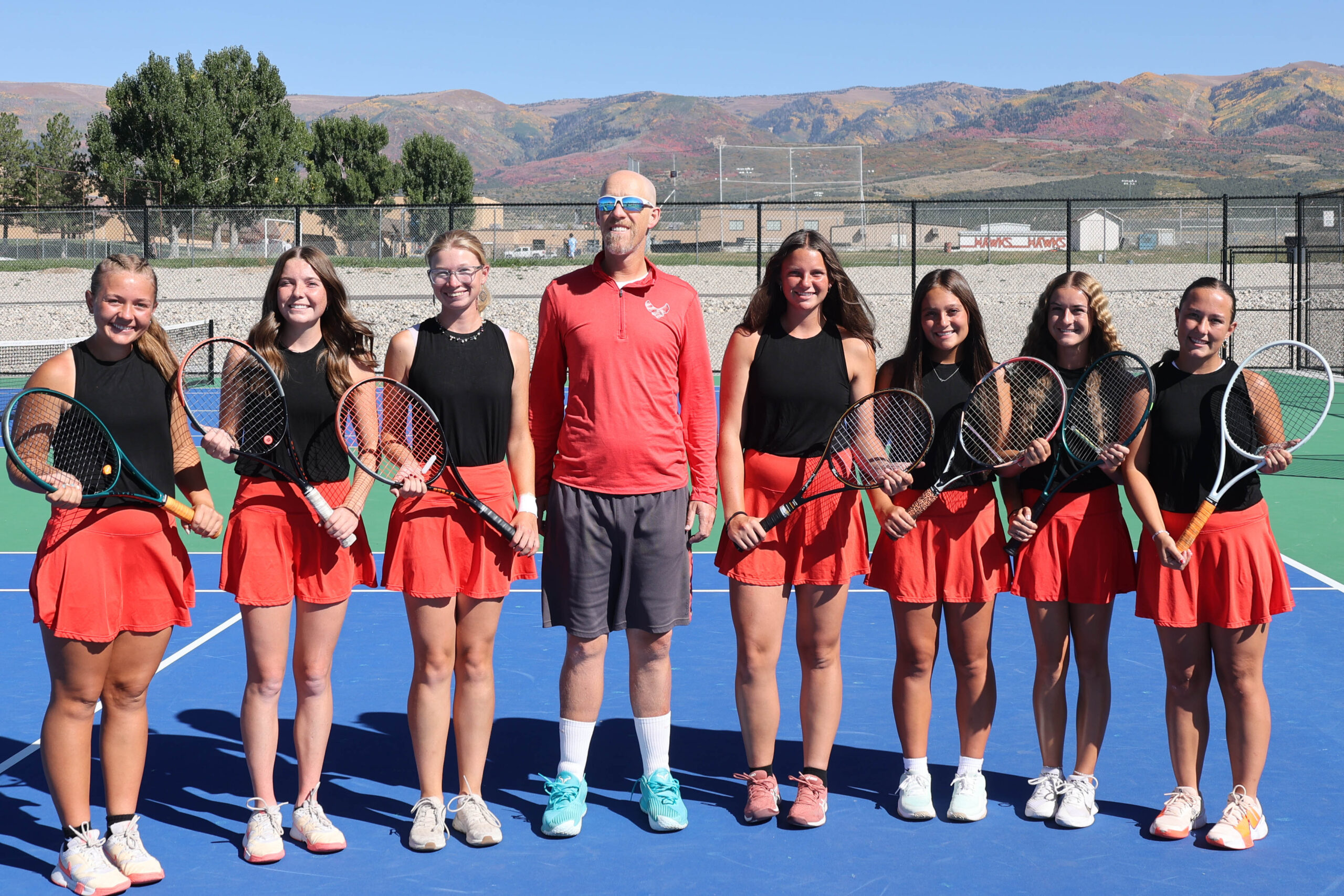
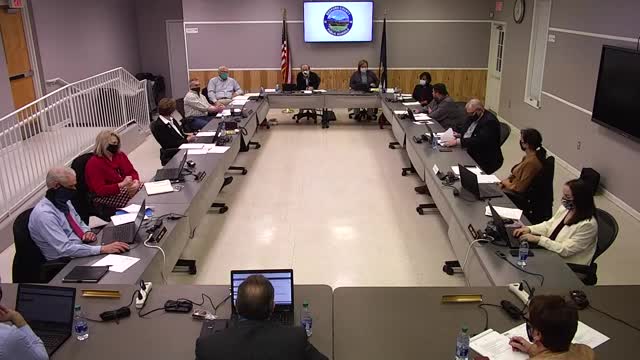
This article was created by AI using a video recording of the meeting. It summarizes the key points discussed, but for full details and context, please refer to the video of the full meeting.
Link to Full Meeting
A primary focus of the meeting was the mental health of student athletes, particularly in light of increased stress related to academic performance and the challenges posed by online learning. Board members expressed the need for enhanced mental health services, with plans to initiate sessions for athletes to address these concerns. However, the effectiveness of these measures was questioned, particularly regarding whether students would feel comfortable discussing their mental health issues with coaches or school counselors.
The conversation shifted to the implications of COVID-19 on sports, with board members debating the necessity of mitigation measures and the feasibility of allowing students to compete. Some members argued that the desire to play sports was overwhelming, suggesting that students would prefer to compete under strict health guidelines rather than not play at all. Others raised concerns about the potential risks associated with sports activities, especially given the rising positivity rates in the community, which were reported to be at crisis levels.
The board also discussed the use of surveillance cameras to assist in contact tracing during positive COVID-19 cases. While some members supported this approach as a necessary tool for ensuring safety, others questioned the legality and ethics of monitoring students in this manner.
As the meeting progressed, tensions escalated, with board members expressing frustration over the lack of consensus on how to proceed. Some members emphasized the importance of representing community voices, particularly those advocating for the return of sports, while others maintained that prioritizing health and safety was paramount.
In conclusion, the meeting underscored the ongoing struggle to balance educational needs, mental health support, and the safety of students and staff amid the pandemic. With rising COVID-19 cases and community concerns, the board faces critical decisions that will shape the future of sports and mental health services in Bedford County. The next steps remain uncertain, as the board continues to grapple with these pressing issues.
Converted from School Board Meeting 1/14/2021 – 5:00 PM meeting on July 15, 2025
Link to Full Meeting
Health
CAREGD Trademark Hits the Streets for Mental Health Month
Atlanta and Los Angeles: CAREGD Trademark Leads Mental Health Check-In Tour. The culture-forward wellness brand activated barbershops, fire stations, and courts with emotional check-ins, bold merch, and real talk-reminding communities across ATL and LA: your headspace comes first.Image: https://authoritypresswire.com/wp-content/uploads/2025/06/CAREGD-me-first-then-sports-Ranch.jpg Atlanta, GA – CAREGDImage: https://s.w.org/images/core/emoji/15.0.3/72×72/2122.png, a culture-forward wellness brand, activated across Atlanta and Los Angeles during […]



Atlanta and Los Angeles: CAREGD Trademark Leads Mental Health Check-In Tour. The culture-forward wellness brand activated barbershops, fire stations, and courts with emotional check-ins, bold merch, and real talk-reminding communities across ATL and LA: your headspace comes first.
Image: https://authoritypresswire.com/wp-content/uploads/2025/06/CAREGD-me-first-then-sports-Ranch.jpg
Atlanta, GA – CAREGDImage: https://s.w.org/images/core/emoji/15.0.3/72×72/2122.png, a culture-forward wellness brand, activated across Atlanta and Los Angeles during Mental Health Awareness Month-hosting check-ins with athletes, barbers, and firefighters to make emotional wellness visible in overlooked spaces.
Through a series of grassroots conversations-some filmed professionally, others raw and real on a phone camera-founder Lisa C. Williams and her team brought visibility to emotional wellness in spaces that are often overlooked. From athletes to barbers to first responders, CAREGDImage: https://s.w.org/images/core/emoji/15.0.3/72×72/2122.png showed up where mental health often gets buried under performance, pressure, and silence.
“We didn’t always have perfect lighting or a full camera crew-and we didn’t need it,” said Lisa C. Williams, founder of CAREGDImage: https://s.w.org/images/core/emoji/15.0.3/72×72/2122.png. “Sometimes, it was just me, a couple of young men, and a mic-asking real questions that don’t get asked enough. This month was about presence, not perfection.”
Video: https://www.youtube.com/embed/3wfzACb3AIU?rel=0&modestbranding=0&rel=0&showinfo=1&controls=1&autohide=2&showinfo=0?ecver=2
Video Link: https://www.youtube.com/embed/3wfzACb3AIU
Where CAREGDImage: https://s.w.org/images/core/emoji/15.0.3/72×72/2122.png Checked In
B.E.S.T. Basketball Program (Building Effective Solutions Together) – Stockbridge, GAAthletes reflected and recharged in nature-proving that rest is performance, too.Coach David McRae | bestprogram.me [https://bestprogram.me/]
BallinIsMoney AAU Basketball – Atlanta, GA High school boys opened up in interviews while rocking merch that reminded them: Me 1st. Then Sports. Coach Avery McGinnis | @ballinismoney_hoops [https://www.instagram.com/ballinismoney_hoops]
Barbershop Pop-Up – Atlanta, GAWe checked in on culture shapers for National Barber Mental Health Month-because barbers are always checking on everybody else.Ike Thomas & Tez Angelo | @tez.angelo [https://www.instagram.com/tez.angelo]
Centric Barber Lounge – Union City, GADre Dennis, Owner | @chopgod_ [https://www.instagram.com/chopgod_] | @centricbarberlounge
Ballislife All-American Games – Long Beach, CAAt Long Beach City College’s Hall of Champions, CAREGDImage: https://s.w.org/images/core/emoji/15.0.3/72×72/2122.png paused the hype to spotlight headspace and emotional wellness. Matt Rodriguez, CEO | @ballislife
Athlete Wellness Fair – Westlake Village, CAWe tapped in with LA Rams Sports Psychologist Dr. Carrie Hastings and Monica Wurst, a Yoga x Mindset Coach for elite athletes. Dr. Carrie Hastings | @sportpsychbydrh @monica.wurst
Firefighter Tribute at Station 28 – Porter Ranch, CA CAREGDImage: https://s.w.org/images/core/emoji/15.0.3/72×72/2122.png closed the month by honoring LA firefighters who battled the 2025 wildfires-true heroes carrying invisible emotional weight. In partnership with @mayweatherfitporterranchca
Interviews & Collaborators
* Devean Walker – LA Valley College Men’s Basketball | @theyyluvdev
* Roberto Bell – Barber | @berto._.bell
* Phillip Johnson – Founder, Black Men Need Hugs | @blkmenneedhugs
* Lisa C. Williams – Founder, CAREGDImage: https://s.w.org/images/core/emoji/15.0.3/72×72/2122.png
Videography Credits
Select interviews and footage were captured by an incredible team of visual storytellers who brought this movement to life:
* Hassan Wells | @hassanhaze
* Bernard “Nate” Brisbane | @natesoul
* Dez Brown | @dezzy.world
We thank them for amplifying our message through powerful, authentic visuals.
ABOUT CAREGDImage: https://s.w.org/images/core/emoji/15.0.3/72×72/2122.png
CAREGDImage: https://s.w.org/images/core/emoji/15.0.3/72×72/2122.png (Compassion, Awareness, Resilience & Emotional Grounding Delivered) is a culture-forward wellness movement making emotional check-ins visible, normal, and necessary. We bring mental health awareness to the frontlines-whether in locker rooms, lunchrooms, barbershops, gyms, or battlegrounds. If you show up for others, we show up for you.
Signature Campaigns:
Checking In – Are You Good?Image: https://s.w.org/images/core/emoji/15.0.3/72×72/2122.png A national visibility campaign rooted in community, making honest mental health convos normal-where people already are.
Me 1st Then SportsImage: https://s.w.org/images/core/emoji/15.0.3/72×72/2122.png A bold initiative flipping the focus from performance to personhood across the entire sports ecosystem.
You Matter MoreImage: https://s.w.org/images/core/emoji/15.0.3/72×72/2122.png A merch-driven affirmation campaign reminding people they are more than what they produce . This is care for the ones who rarely get it.
“Mental health is not just about therapy rooms and hotlines,” Williams added. “It’s about showing up where people already are and reminding them they’re not alone. That’s CAREGDImage: https://s.w.org/images/core/emoji/15.0.3/72×72/2122.png in motion.”
#CheckingInCampaign #WeCheckInLoud #Me1stThenSports #YouMatterMore
Media Contact
Company Name: CAREGD
Contact Person: Sara Hudson
Email: Send Email [http://www.universalpressrelease.com/?pr=caregd-hits-the-streets-for-mental-health-month-real-conversations-real-checkins-and-real-care]
Phone: 770-264-0002
Country: United States
Website: https://caregd.com
Legal Disclaimer: Information contained on this page is provided by an independent third-party content provider. GetNews makes no warranties or responsibility or liability for the accuracy, content, images, videos, licenses, completeness, legality, or reliability of the information contained in this article. If you are affiliated with this article or have any complaints or copyright issues related to this article and would like it to be removed, please contact retract@swscontact.com
This release was published on openPR.
Health
Ryan Clark Calls Naomi Osaka a Very "Necessary Human Being" for Making Tough Choices …
“It’s O.K. to not be O.K.,” Naomi Osaka famously wrote in 2021. That year, Osaka courageously declared to the world that she would be stepping away from tennis to take care of her mental health. She shared that after winning her first Grand Slam in 2018, she suffered from anxiety and depression. Advertisement Osaka’s decision […]


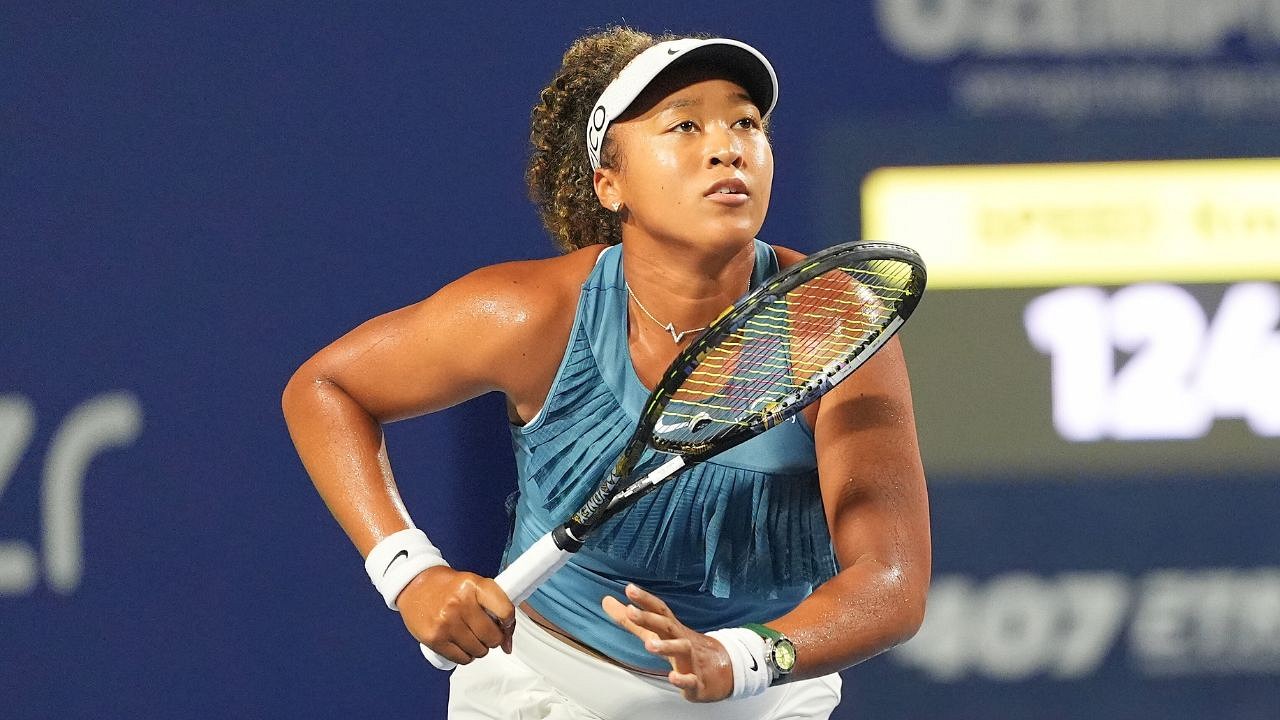
“It’s O.K. to not be O.K.,” Naomi Osaka famously wrote in 2021. That year, Osaka courageously declared to the world that she would be stepping away from tennis to take care of her mental health. She shared that after winning her first Grand Slam in 2018, she suffered from anxiety and depression.
Advertisement
Osaka’s decision to withdraw from the 2021 French Open and temporarily step away from tennis to focus on her mental health left many puzzled at the time. However, many also lauded her for taking the brave decision despite the stigma surrounding mental health issues.
According to Ryan Clark, her choice to prioritize her well-being over competition helped ignite a broader, much-needed conversation about the intense pressures athletes face and the significance of mental health and self-care in professional sports.
“I think Naomi Osaka is a very necessary human. As an athlete. Unfortunately, there are these people who go through these things publicly that allow the entire sports world to learn, and she has just been chosen to be that one. What she did at the French Open years ago, stepping away and saying, ‘I gotta focus on myself.’ That was groundbreaking.”
Lauding her for her openness in the face of personal struggles, Clark added:
“And then to explain why she did it. You know that by choosing to be open about it, there’s going to be criticism, there’s going to be disappointment, even in explaining it, there’s going to be criticism.”
Adding to her struggles, Naomi also underwent postpartum complications due to her “traumatic” birth experience. Osaka welcomed her daughter, Shai, in July 2023, marking a deeply meaningful chapter in her life.
Naomi Osaka’s struggles continue
She described motherhood as “so fulfilling,” but also candidly acknowledged the challenges of juggling her return to professional tennis with the demands of being a new mom. Osaka admitted the transition was “tough,” underscoring the critical role of a strong support system, and noting that raising a child truly “takes a village.” Once she returned to the court, she admitted, “I don’t feel like I’m in my body.”
“And then she had a baby. And I think for female athletes, when you give birth to a child, it’s so much different than it is for us… I think it’s super cool of her to let us see it because so many people hide it,” Clark said on the Pivot podcast.
The former world No. 1 continues to navigate the emotional and physical challenges of her return to tennis. In May, she was visibly emotional during her media interview after Osaka fell in the first round of the French Open to Spain’s Paula Badosa. Despite a promising start, Osaka’s performance unraveled with 54 unforced errors and five double faults, hindered further by blisters on her hands caused by the clay surface.
Last week, the Japanese player suffered a tough 3-6, 6-4, 6-4 loss to Russia’s Anastasia Pavlyuchenkova at Wimbledon. It marked yet another early exit for Osaka, who hasn’t advanced past the third round of a Grand Slam since winning her last major title at the Australian Open in January 2021.
After her latest Wimbledon loss, Osaka was candid about her frustration: “Yes, [I feel closer to a deep run], but honestly, right now I’m just really upset. I’m just going to be a negative human being today. I’m so sorry. I have nothing positive to say about myself, which is something I’m working on.”
Health
How some veterans are using recreational activities for mental health
PEWAUKEE, Wis. — Transitioning out of the military and into civilian life can put a toll on mental health. According to the most recent data from Veteran Affairs, there were 136 veteran suicides in Wisconsin in 2022 and suicide was the 12th leading cause of death for veterans in 2022. What You Need To Know Jeremy […]


PEWAUKEE, Wis. — Transitioning out of the military and into civilian life can put a toll on mental health.
According to the most recent data from Veteran Affairs, there were 136 veteran suicides in Wisconsin in 2022 and suicide was the 12th leading cause of death for veterans in 2022.
Jairo Javier enlisted in the Marines in 2014 when he was only 17-years-old.
“My uncle was a Marine. I idolized him as a kid growing up. So, I always had a desire to be a Marine, even though I did not fully understand what that fully entailed,” said Javier.
Javier served nine years total, six of which were active duty and three years in the reserves. He said he misses many things about it.
“The brotherhood, the comradery, the high stakes environment, just the intensity behind the job,” said Javier. “You don’t truly appreciate it until after you leave. At least that was my case.”
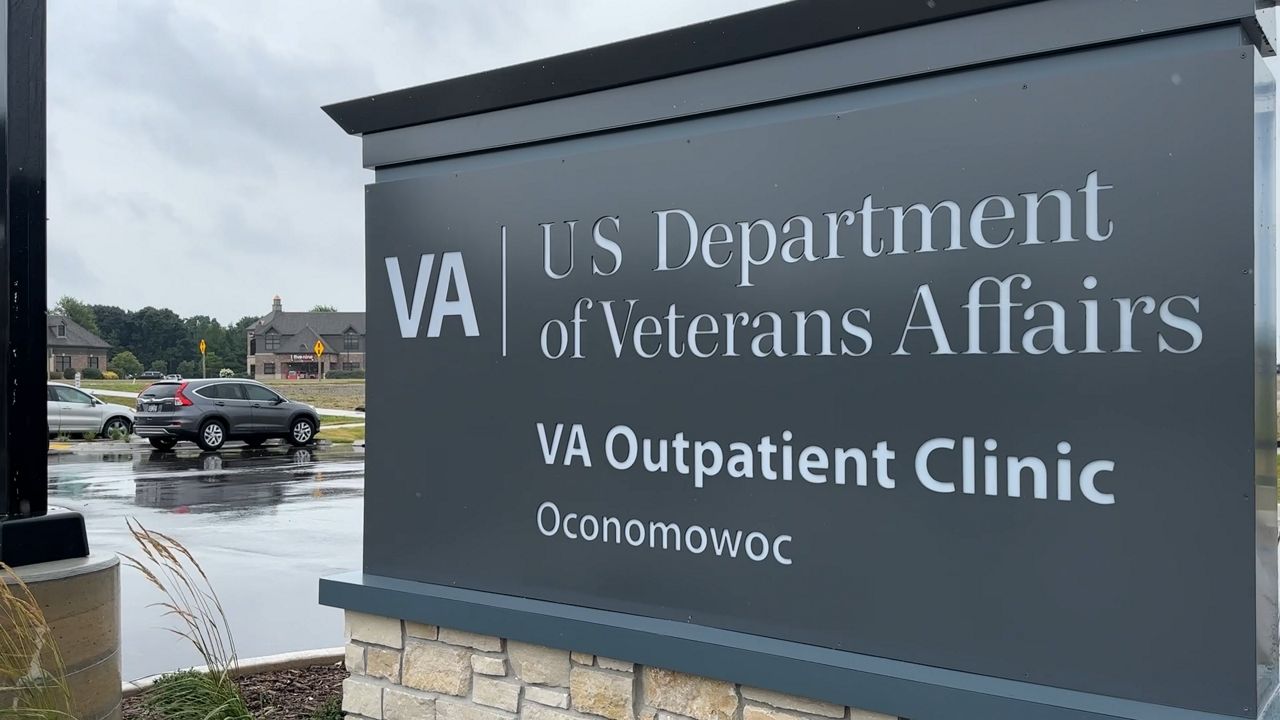
(Spectrum News 1/Cody Taylor)
When Javier retired from the military, he had taken up skydiving as a sport to keep him busy.
Now, he says he spends a lot of his free time out on the water boating.
“Regardless of what background you have, getting out on a boat and coasting across the water or floating on the water is something that is a stress reliever,” said Javier.
Jeremy Lyon works for the division of veterans’ benefits at the Wisconsin Department of Veterans Affairs.
He said the military experience runs deep and it can be difficult to transition out of the military.
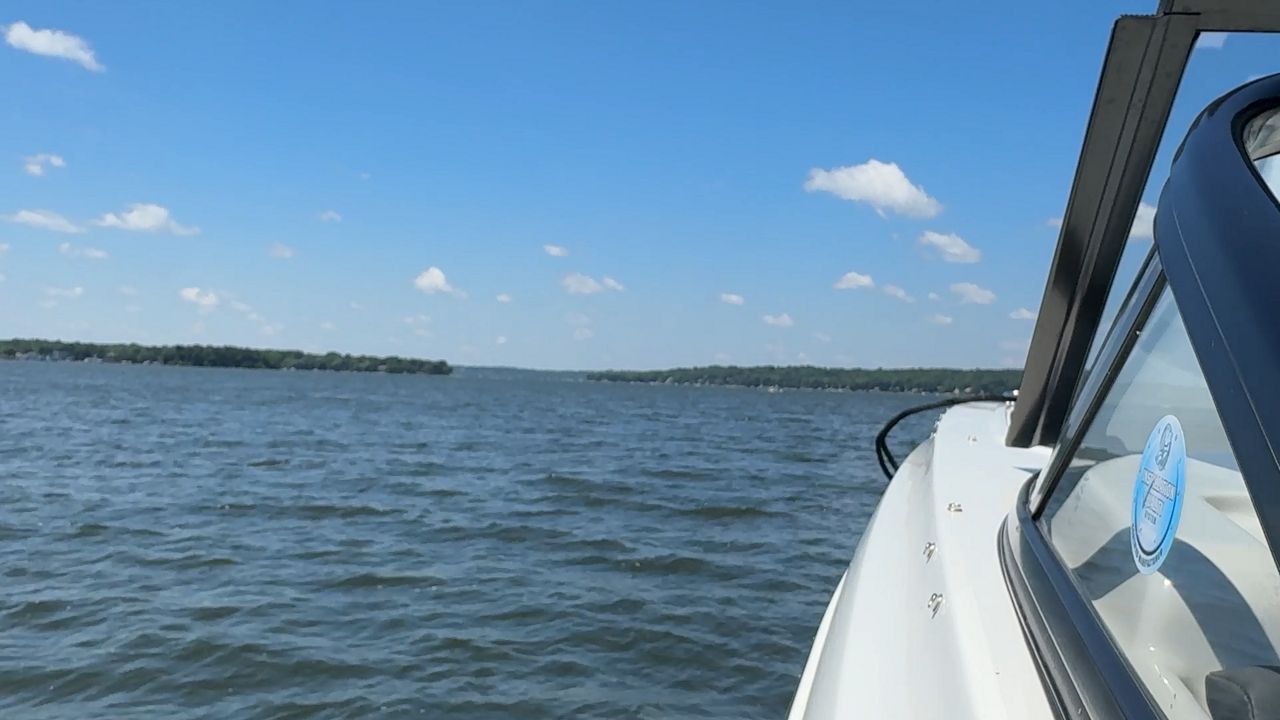
(Spectrum News 1/Cody Taylor)
“There’s that fundamental fact that you are now missing that fundamental mission you were a part of and missing that team and the comrades you had besides you,” said Lyon.
He said it is important veterans know what resources are available or to at least find a sense of community when they exit the military.
“I have heard of a number of veterans who go fishing, go boating, go horseback riding, these are all great experiences,” said Lyon. “They bring us together as a community, they give you a peer network of other veterans to talk to.”
While Javier said he found boating to be a good pastime, Lyon said veterans can also get involved with the American Legion or one of the other veterans’ groups in the community.
Health
Century of School Sports
MHSAA marks a century of prioritizing health and safety in school sports across Michigan. From its inception, the organization has driven initiatives alongside defined health guidelines, addressing issues like head injuries, heat management, and cardiac incidents. Executive directors have promoted mental health awareness and implemented policies to ensure safety through comprehensive physical assessments and emergency […]



MHSAA marks a century of prioritizing health and safety in school sports across Michigan. From its inception, the organization has driven initiatives alongside defined health guidelines, addressing issues like head injuries, heat management, and cardiac incidents. Executive directors have promoted mental health awareness and implemented policies to ensure safety through comprehensive physical assessments and emergency action plans. Insurance programs supporting youth in catastrophic situations have also been foundational. As conversations around sports often overlook these issues, the MHSAA remains committed to keeping athlete safety at the forefront.
By the Numbers
- MHSAA introduced updated physical forms in 2011, incorporating family health histories.
- Since 2015-16, MHSAA has mandated reporting of all potential head injuries among athletes.
State of Play
- MHSAA continues developing policies for heat and humidity to enhance hydration practices during activities.
- The organization has integrated mental health training in annual meetings and promoted suicide prevention initiatives.
What’s Next
The MHSAA plans to further refine safety protocols and expand educational resources for coaches, focusing on emerging health issues and athlete well-being. Upcoming initiatives may also explore innovative approaches to enhance mental health support and athlete safety in increasingly stress-inducing environments.
Bottom Line
The emphasis on health and safety within school sports is essential for sustaining athlete participation and success. The MHSAA’s proactive stance ensures that athlete well-being remains a priority, reinforcing that safety measures are foundational to any successful sports program.
-

 Technology3 weeks ago
Technology3 weeks agoPet fitness and wellness trends for a healthier and happier dog
-

 College Sports3 weeks ago
College Sports3 weeks agoWAC to Rebrand to UAC, Add Five New Members in 2026
-

 College Sports3 weeks ago
College Sports3 weeks agoA new era of Dickinson hockey begins behind the bench – The Dickinson Press
-

 Motorsports2 weeks ago
Motorsports2 weeks agoWhy Cosmetics are Making Up for Lost Time in Women’s Sports
-
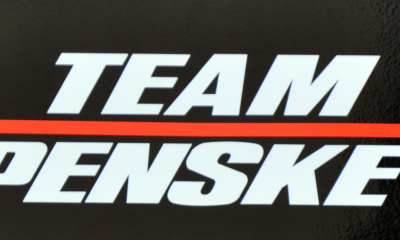
 Motorsports2 weeks ago
Motorsports2 weeks agoTeam Penske names new leadership
-

 Sports1 week ago
Sports1 week agoNew 'Bosch' spin
-

 Motorsports3 weeks ago
Motorsports3 weeks agoNASCAR This Week – Patriot Publishing LLC
-

 Youtube2 weeks ago
Youtube2 weeks ago🚨 BREAKING: NBA MVP Shai Gilgeous-Alexander signs the RICHEST annual salary in league history
-

 Sports1 week ago
Sports1 week agoE.l.f Cosmetics Builds Sports Marketing Game Plan Toward Bigger Goals
-

 College Sports2 weeks ago
College Sports2 weeks agoMSU Hockey News – The Only Colors




























